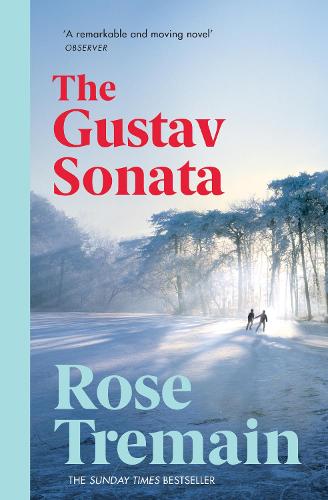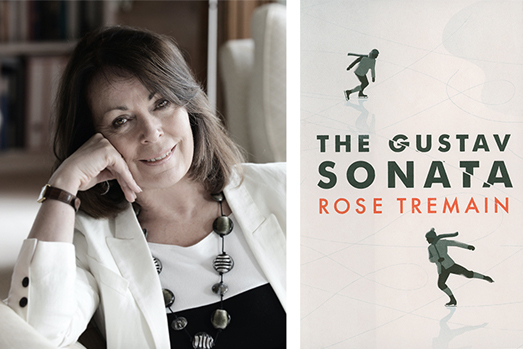From the Women’s Prize Archives.
We caught up with the brilliant Rose Tremain, this year longlisted for the Baileys Women’s Prize for Fiction for The Gustav Sonata. Read on to find out why Rose set her latest book in neutral Switzerland, who her literary heroines are and why Rose once wrote an entire short story in Liverpool St Station.
The Gustav Sonata is set in neutral Switzerland in the years around World War II, why did you choose this setting?
We, outside of Switzerland, imagine it, I think, as this serene neutral space which had no difficulty staying separate from the horrors of World War II. But the reality was very different. The Swiss lived in perpetual terror of a German invasion and were forced to make political compromises to placate the German High Command – not least on the subject of the Jews, fleeing from persecution in Germany, Austria and France. I wanted to have a hard look at this. But what I also contrived in this book was to create a character, Gustav, who, in the face of unrequited love, has to strive for his own neutrality and whose willed altruism may or may not lead to redemption and freedom.
Your novels are full of varied, brilliantly realised historical settings. What kind of research do you tend to undertake before you sit down to write?
Research will take different forms, according to the subject I’ve chosen. To write Restoration, I began by reading the Pepys diaries and let this brilliant chronicler lead me towards a huge amount of reading about every facet of the world of the 1660s. To write The Road Home, it seemed very important to try to imbibe the immigrant experience first-hand, so I spent significant time talking to Polish workers in the East Anglia vegetable picking industry. For Music & Silence, I worked a lot from portraits, capturing the changing face of King Christian IV from handsome prince to weary, lard-faced monarch. For The Gustav Sonata, I read a ton of books about Switzerland, both at the time of the war and about Swiss society as it is now. I also drew on my own observations during my travels there. One last thing: to write fiction that feels real and dynamic and which isn’t just a distillation of data, I believe that the research has to be done thoroughly and then almost forgotten, so that the writer’s imagination can begin to create her own world.

Which female writers would you say have had the biggest impact on you and why?
George Eliot, above all. DH Lawrence commented that it was she ‘who started putting all the action inside’, i.e. she was profoundly more interested in people’s interior lives than in the day-to-day events she contrives for them. But George Eliot also understood that plots had to grip, that jeopardy thrilled readers, that romantic love, jealousy, class-hatred, gossip, fashion, property and money were subjects of perennial fascination. Like her, I am more absorbed by the landscape of characters’ minds than by their material lives but I also love the challenge of contriving a page-turning plot. Virginia Woolf understood all this perfectly, layering each moment with meaning, so her writing, too, so delicate and under-stated, has had what I hope is a positive impact on my own.
Is there a particular place where you like to write?
When I was young, I used to be able to write anywhere. I once wrote an entire short story in the old, unreconstructed buffet of Liverpool Street Station! Now, I can’t seem to move my work from location to location without it suffering. What I like best is to work in my study in Norfolk, with its familiar perfume of books and papers and its consoling view of the garden.
Can you tell us what you’re working on next?
At the moment, I’m working on long-form TV scripts of two of my novels, Trespass for Left Bank Pictures and The Road Home for Buccaneer Media. The collaborative aspect of film and TV writing is always thrilling and sustaining after the long solitude of the novel. A new idea for a novel has begun to twitch at the back of my mind, but it’s, as yet, only a half-formed embryo, which will need much more nurture before it becomes anything worth talking about.



